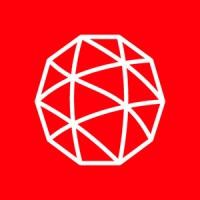
John Robinson
Founder and Chief Pilot at JR Air Systems- Claim this Profile
Click to upgrade to our gold package
for the full feature experience.
Topline Score


Bio


Credentials
-
Remote Pilot
Federal Aviation AdministrationAug, 2018- Oct, 2024 -
State of Tennessee EIT, 1990
National Society of Professional EngineersJun, 1990- Oct, 2024 -
sUAS Level I Thermographer
Infrared Training CenterDec, 2020- Oct, 2024
Experience
-
JR Air Systems
-
United States
-
Aviation and Aerospace Component Manufacturing
-
1 - 100 Employee
-
Founder and Chief Pilot
-
Jul 2018 - Present
This is the final professional stop (as of this five minutes). Finally a place where I can have fun and make a buck: by myself, out watching my drones fly around on a nice day, and get paid for it. I know, where can you sign up? Sorry, but I'm not hiring. This is a one-man gig and I like it that way: Personal service to my clients and only arguing with myself. Thanks for flying JR Air! This is the final professional stop (as of this five minutes). Finally a place where I can have fun and make a buck: by myself, out watching my drones fly around on a nice day, and get paid for it. I know, where can you sign up? Sorry, but I'm not hiring. This is a one-man gig and I like it that way: Personal service to my clients and only arguing with myself. Thanks for flying JR Air!
-
-
-
Mercury Consulting
-
France
-
International Trade and Development
-
Founder & President
-
Apr 2017 - Jul 2018
I started Mercury with the thought that I could tilt windmills in Mission Assurance on my own. The truth is, it's much harder by yourself. Well, that was a bust. My heart just isn't in the rocket biz anymore. Time to switch to something a little closer to Earth. I started Mercury with the thought that I could tilt windmills in Mission Assurance on my own. The truth is, it's much harder by yourself. Well, that was a bust. My heart just isn't in the rocket biz anymore. Time to switch to something a little closer to Earth.
-
-
-
Aerojet Rocketdyne
-
United States
-
Defense and Space Manufacturing
-
700 & Above Employee
-
Mission Assurance Engineer
-
Feb 2004 - Dec 2016
A varied and sundry list of job titles and experiences were had here... - Project engineer. Probably the most well-rounded of all the engineering disciplines. - Systems engineer. One must really like requirements to have fun at this job. I had fun at this job. - Internal Research and Development. Not as sexy as it sounds, but I did get to develop some new propulsion technology (I was also the program manager, not my cup of tea). - Mission assurance engineer. My pilgrimage was finally over. All my training and experiences finally converged in the most logical of assignments. It is difficult to convey the roles and responsibilities of this function, but that was the allure of the job. I could focus where and when I was needed: at design reviews, at manufacturing reviews, leading failure investigations, representing product mission assurance as warranty after sale. Very high-profile and I loved it. - Chief failure investigator for NASA's Orion hardware. As the Orion mission assurance engineer, it was my duty to lead or oversee all failures related to this NASA-bound hardware. You learn a lot from failures. Show less
-
-
-
United Space Alliance
-
United States
-
Defense and Space Manufacturing
-
700 & Above Employee
-
Propulsion Systems Engineer
-
Aug 1990 - Jan 2004
Working with hypergolic propellants is not for the timid. I served nearly 14 years as a space shuttle orbiter OMS/RCS engineer. For those shaky with the lingo, OMS/RCS are the Orbital Maneuvering System and Reaction Control System, and both use hypergolic rockets as end-effectors. I learned about ground and flight systems fluid design, and the electrical systems required to operate them. Software controls had always been a fascination with me so I was the application software lead engineer for my group. This allowed to take functional requirements from hardware engineers, translate them into software requirements for the software engineers, and follow through with the verification and acceptance testing at the end. Very fulfilling. Working on the flight hardware was my ultimate passion, however. Every day, being able to see and touch a spacecraft - one that has carried friends to space and back - is something only a handful of people get to do in their lives. That part is what I miss the most. Columbia's STS-107 mission was my last at KSC. May peace always be with her crew and their families. And to the wonderful people of Hemphill, Texas: Thank you for making all of us on the recovery team feel like we were kin. It made the unbearable task bearable. Show less
-
-
Education
-
1984 - 1990

University of Tennessee, Knoxville
Bachelor's degree, Aerospace, Aeronautical and Astronautical Engineering
Community










